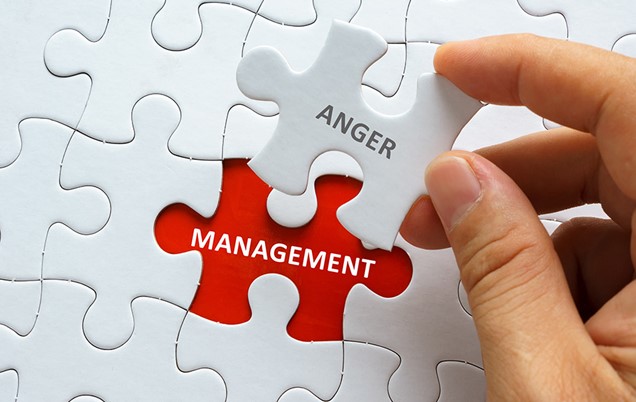Advice hub. Managing anger
It’s well known that tempers can flare at work – both back and front-of-house. But even away from work, you may find yourself getting angry. You may not even know why. Anger can be driven by all sorts of emotions running under the surface: anxiety, confusion, depression or helplessness to name just a few.
Although anger is often labelled as negative, it is a normal, healthy emotion. But it becomes problematic when it is expressed in unhelpful ways or repressed and grows into resentment.
About anger
Anger is an emotion which provides vital intelligence about our environment. It gives us the energy and motivation to take care of ourselves. It lets us know when we feel threatened or that something is not right. Used well it can help us to problem solve and improve situations.
But it also feels uncomfortable.
We experience physical changes when we are angry. If anger is unexpressed or turned inwards, it can lead to high blood pressure, heart problems or even depression. Anger tends to affect our ability to think clearly and this can lead to impulsive or destructive behaviour. If we do not manage our anger, we can become openly aggressive or passively aggressive. However, being angry is never an excuse for violence or bullying. The key to managing it is becoming more aware of our feelings and taking responsibility for them.

Signs of anger include:
- Shallow breathing
- Faster heart rate
- Feeling hot
- Persistent thinking, unable to let things go
- Tensed muscles, clenched jaw and teeth grinding
- Rapid breathing
- Sweating
- Shaking
- Going quiet and shutting down
- Desire to insult or criticise others
When you are angry
Once you have recognised you are angry the first thing to do is stop and ask yourself what you are angry about. Remember that anger gives you important information about your situation and it needs to be acknowledged before you can decide what to do with it.
You can use some simple strategies to give yourself time to calm down and think:
- Count to ten
- Slow your breathing down, breathe out for longer than you breathe in
- Leave the situation if you can, take a walk or get some fresh air
- Speak to a supportive friend or colleague
- Write down what you are feeling, this can often lead to more clarity
- Maintain perspective
Because anger is often perceived culturally as a negative emotion, many of us have learned indirect ways of expressing it. These indirect ways that let people know we are angry include passive aggression, sarcasm and ‘joking’.
Indirect expressions of anger undermine our relationships and perpetuate problems. If we learn to accept that we are angry, then we can communicate it in an assertive, respectful way.
Use ‘I’ statements rather than ‘you’ statements as it demonstrates responsibility. For example, ‘I find that a busy service is stretching me beyond my capacity and I would appreciate more assistance’ rather than ‘You keep leaving me under-staffed and you need to fix this’.
Make your demands clear e.g. ‘I would like you to arrive at work on time’.
Stick with the facts and the consequences and avoid interpreting. For example: ‘I notice that you have been late every morning this week and this has meant other colleagues have had to deal with a high volume of phone calls in your absence.’
If you feel that your anger is difficult to manage and find yourself in a pattern of behaving impulsively, aggressively or violently, or if you are persistently critical and undermining of others there may be more difficult issues that need addressing. Problems at home, worries about finances or the stress of managing heavy workloads are very real pressures. At times like this it may help to speak with a professional who can help you to understand what is fuelling your anger and will work with you to find ways to manage it.
Other ways that can help to reduce anger are:
- Get regular exercise
- Maintain a good work/life balance
- Avoid reliance on alcohol or other addictive substances
- Get enough sleep
- Eat a healthy diet
Talk to someone about your feelings.
Hospitality Action Helpline.
0808 802 0282 (24/7)
EAP Assistance Line.
UK: 0808 802 2111 (24/7)
Irl: 1800 911 121 (24/7)
Support Platform.





